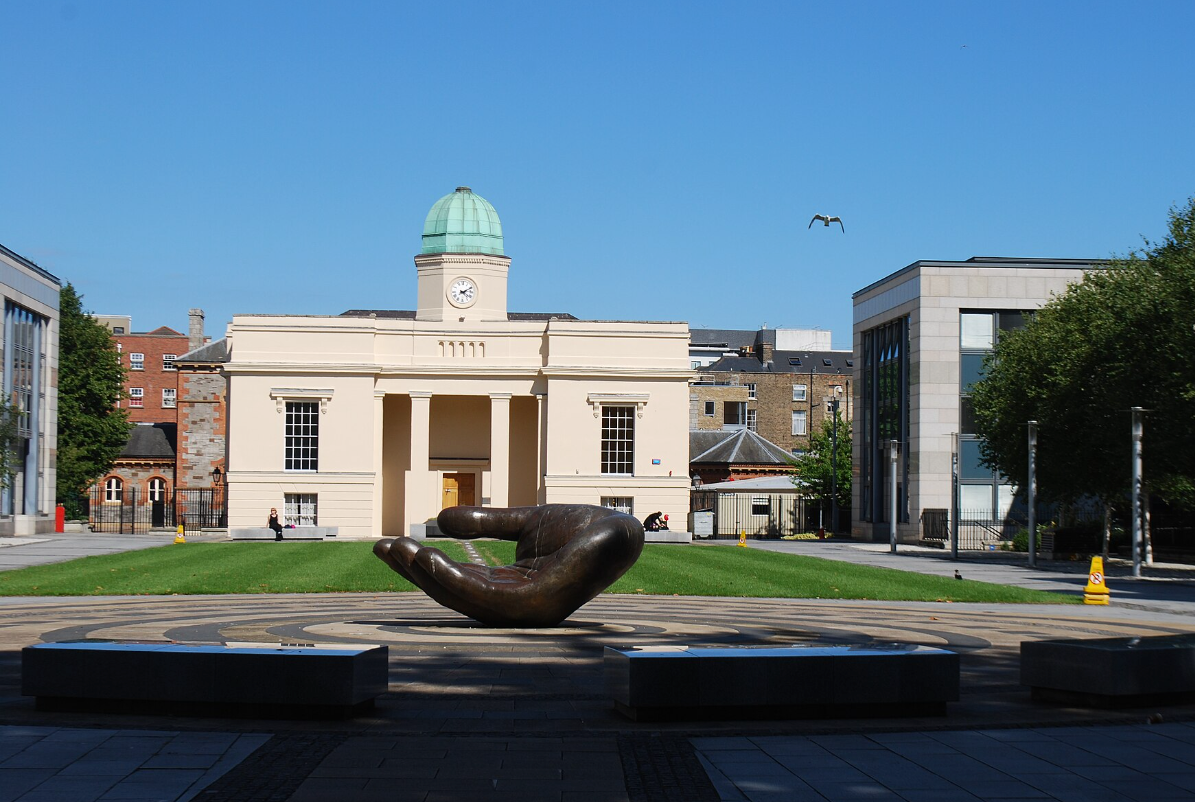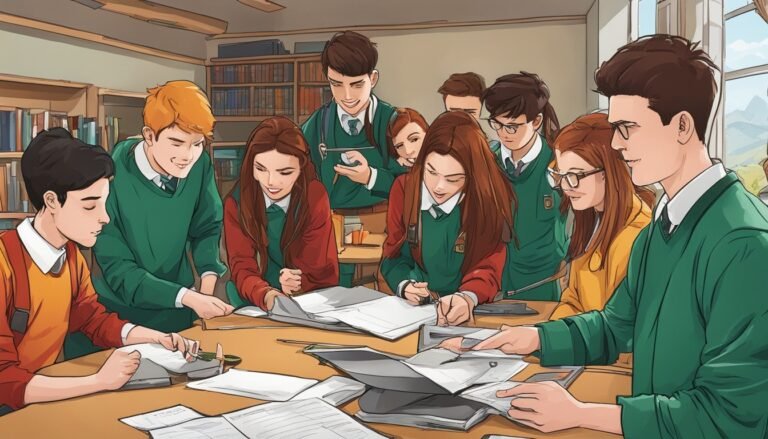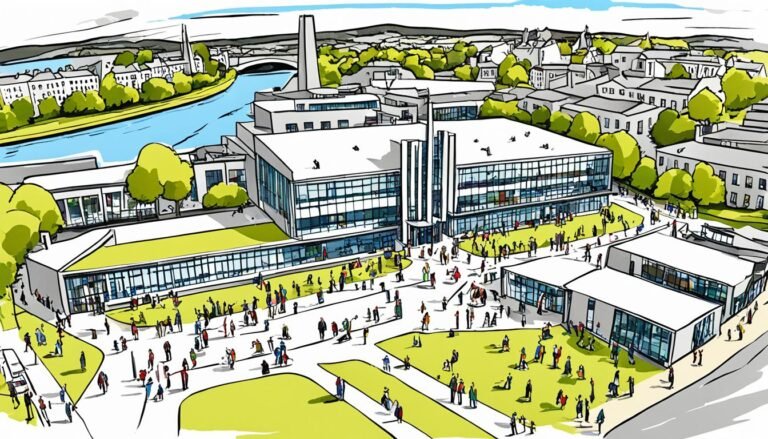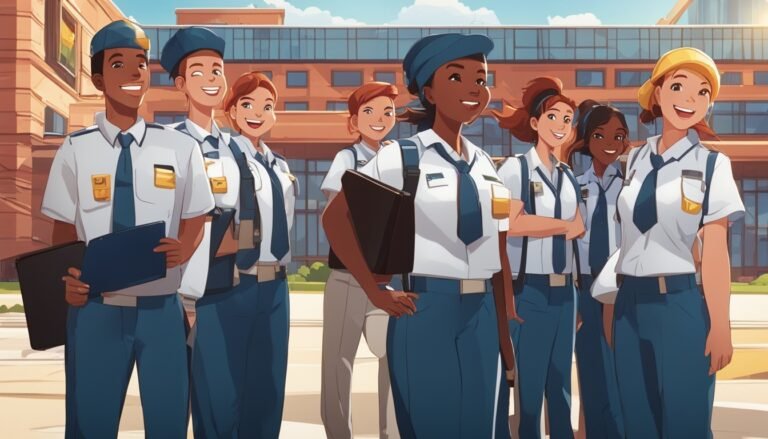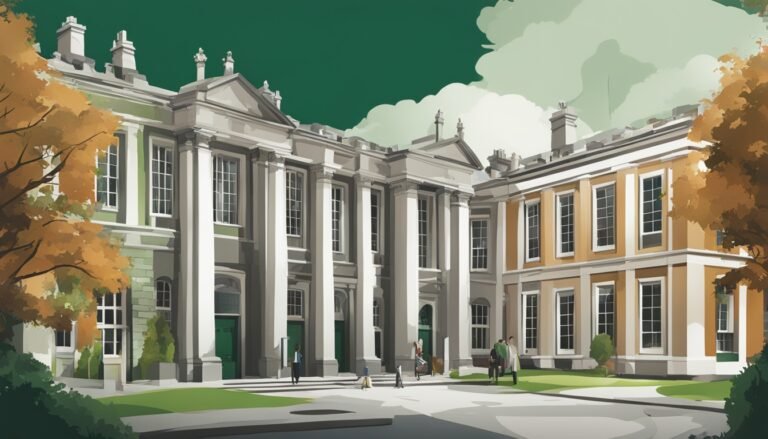Department of Education and Skills in Ireland
Overview
The Department of Education and Skills (An Roinn Oideachais agus Scileanna) is the Irish government department responsible for education policy, curriculum development, school administration, and overseeing both public and private education systems across all levels in Ireland. It plays a vital role in ensuring that educational standards are met and that access to quality education is available to all, from early childhood education to tertiary and further education.
Key Responsibilities
The Department of Education and Skills covers a wide range of responsibilities, which can be grouped into several key areas:
- Primary and Secondary Education
The department ensures the proper functioning of primary (national schools) and secondary (post-primary schools), focusing on curriculum development, teacher training, and school inspections. It ensures that the Irish education system remains competitive and inclusive, promoting equality of access to education for all children. - Higher Education
Overseeing third-level institutions like universities, institutes of technology, and other colleges, the department ensures high-quality standards in Irish higher education and facilitates financial support schemes, including the SUSI (Student Universal Support Ireland) grant. - Further Education and Training (FET)
This includes vocational training, apprenticeships, and continuing education opportunities for adults. The department works with bodies like SOLAS (An tSeirbhís Oideachais Leanúnaigh agus Scileanna) to provide alternative educational pathways. - Special Education Needs
The department is committed to providing support for students with special educational needs. It works closely with the National Council for Special Education (NCSE) to ensure that resources are available for students with disabilities, whether through specialized schools or integration into mainstream schools with additional support. - Teacher Education and Development
The department regulates the training and ongoing professional development of teachers at all levels, ensuring that they are equipped with the latest pedagogical knowledge and techniques. The Teaching Council is the professional body for the teaching profession in Ireland, setting standards for teacher registration. - Educational Policies and Reforms
As the body responsible for national education strategy, the department spearheads initiatives like STEM (Science, Technology, Engineering, and Mathematics) promotion, digital education strategies, and the development of the Leaving Certificate and Junior Certificate exams. - Schools and Infrastructure
The department oversees the funding and development of school buildings, ensuring modern facilities, appropriate student-teacher ratios, and the allocation of resources to meet the growing demands of the education system. - Equality and Inclusion in Education
Policies are in place to foster inclusive education, with an emphasis on ensuring equal opportunities for students from diverse backgrounds, including the Travelling community, non-native English speakers, and those from disadvantaged areas.
Key Bodies Under the Department
Several key agencies and bodies operate under the Department of Education and Skills to help it fulfill its objectives:
- SOLAS: Responsible for further education and training programs, including apprenticeships and adult learning.
- Teaching Council: The professional standards body for teachers in Ireland, responsible for regulating the profession and teacher training.
- National Council for Special Education (NCSE): Provides resources and support for students with special needs.
- Higher Education Authority (HEA): Coordinates the development of higher education institutions, ensuring quality and governance standards.
- SUSI (Student Universal Support Ireland): Administers financial grants and supports to students pursuing higher education.
Education Structure in Ireland
The education system in Ireland is divided into several levels, and the Department of Education and Skills oversees the entire structure:
- Early Childhood Education
Although non-compulsory, early childhood education is encouraged, with programs like the Early Childhood Care and Education Scheme (ECCE) funded by the government. - Primary Education
Primary education is mandatory for children between the ages of 6 and 16. The Irish National Curriculum covers subjects like literacy, numeracy, and Irish language, with an increasing focus on ICT (Information and Communications Technology). - Secondary Education
Secondary education is split into two main cycles:- Junior Cycle: Spanning three years, ending with the Junior Certificate Examination.
- Senior Cycle: Spanning two to three years, ending with the Leaving Certificate Examination, which is crucial for university entry.
- Further and Higher Education
After completing the Leaving Certificate, students can enter higher education at universities, institutes of technology, or other third-level colleges. Alternatively, they can pursue further education and vocational training programs.
Recent Initiatives
- Digital Strategy for Schools: Launched to integrate digital technologies into Irish schools, ensuring that students are prepared for the digital economy.
- Action Plan for Education: Focused on making the Irish education system the best in Europe by 2026, with priorities on innovation, inclusion, and the integration of STEM subjects.
- School Completion and DEIS Programs: Targeting educational disadvantage through supports for schools in socioeconomically challenged areas.
How to Engage with the Department
The Department of Education and Skills provides several channels for the public to engage with educational matters:
- Website: The department’s website offers resources, updates on policies, and access to various forms and publications (education.ie).
- Customer Support: Parents, students, and teachers can reach out to the department’s support teams for assistance on educational matters.
- Stakeholder Consultations: The department often holds consultations with stakeholders, including parents, educators, and students, to gather feedback on educational policies and reforms.
Conclusion
The Department of Education and Skills is the backbone of the Irish education system, ensuring that all levels of education—from early childhood to higher education—operate efficiently and inclusively. By fostering innovation, supporting teachers, and addressing the needs of students from all backgrounds, the department is working to maintain Ireland’s status as a hub for high-quality education.
Sources:
- Department of Education (education.ie)
- Teaching Council (teachingcouncil.ie)
Additional Resources
- Citizens Information
- Website: www.citizensinformation.ie
- What it Offers: Citizens Information is an official government resource that provides comprehensive guides on the Irish education system. It covers everything from primary and secondary education to adult education and third-level courses. This is a great starting point for understanding your options and rights as a migrant entering education in Ireland.
- Education in Ireland
- Website: www.educationinireland.com
- What it Offers: This is the official government portal for international students interested in studying in Ireland. It offers detailed information on higher education institutions, scholarships, and visa requirements. It’s a valuable resource for migrants looking to pursue third-level education.
- Department of Education
- Website: www.gov.ie/en/organisation/department-of-education/
- What it Offers: The Department of Education provides official policies, procedures, and guidance on the Irish education system, including information for non-Irish nationals entering the system at any level.
- Qualifax (Ireland’s National Learners’ Database)
- Website: www.qualifax.ie
- What it Offers: Qualifax is an excellent tool for researching educational courses and programs in Ireland. It includes information on further education, third-level courses, adult learning, and qualifications. It’s a useful resource for migrants looking to explore different educational paths.
- The Irish Naturalisation and Immigration Service (INIS)
- Website: www.inis.gov.ie
- What it Offers: The INIS website provides detailed information on visas and immigration policies, including requirements for students coming to Ireland to pursue education. It also explains the registration process for non-EEA nationals.
- Postgraduate Applications Centre (PAC)
- Website: www.pac.ie
- What it Offers: For those interested in postgraduate education, PAC allows you to apply to several Irish universities and institutes of technology through a centralized system. It provides key details on application processes for international students.
- SOLAS (Further Education and Training Authority)
- Website: www.solas.ie
- What it Offers: SOLAS manages further education and training in Ireland. It is an excellent resource if you’re looking for vocational or adult learning opportunities.
- Student Universal Support Ireland (SUSI)
- Website: www.susi.ie
- What it Offers: SUSI provides financial support and grants for students in higher education. Non-Irish nationals may also be eligible under certain conditions, so it’s worth checking for funding opportunities.
- The Higher Education Authority (HEA)
- Website: www.hea.ie
- What it Offers: The HEA is responsible for the funding and regulation of higher education institutions in Ireland. Their website offers a wealth of information on the educational landscape, including equality of access and initiatives for international students.
- NARIC Ireland (Qualifications Recognition)
- Website: www.qqi.ie
- What it Offers: NARIC Ireland is part of the Quality and Qualifications Ireland (QQI) system. It provides information on how to get your qualifications from other countries recognized in Ireland, which is crucial if you’re looking to continue your education or work in Ireland.
These resources can help you navigate Ireland’s education system, from finding the right course to applying for student visas or financial aid.

